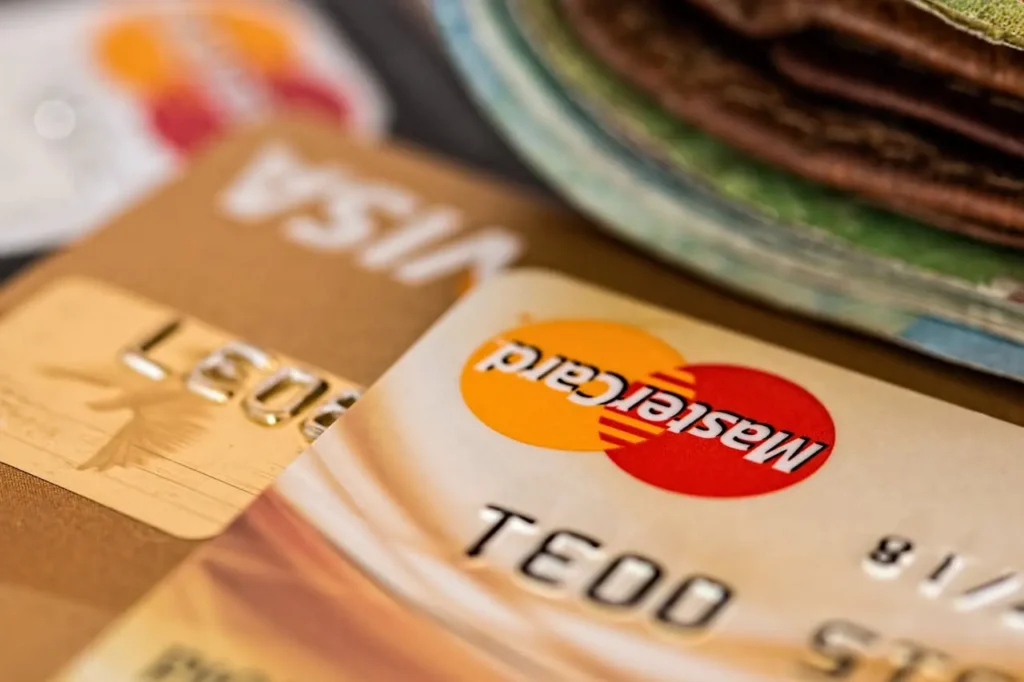Table of Contents
ToggleIntroduction: Why Credit Cards Trump Cash in Today’s Digital Economy
As the U.S. continues its shift toward a cashless society, credit cards have become a cornerstone of modern personal finance. With most merchants embracing digital transactions and mobile payments, carrying physical currency is less practical than ever. Beyond basic convenience, credit cards offer a range of financial advantages that go far beyond what cash can deliver. These include the ability to earn rewards, track spending, access fraud protection, and build a credit history—all critical components for thriving financially in 2025.
This article dives deep into the distinct and growing advantages of credit cards over cash in today’s economic landscape.
12 Advantages of Credit Cards Over Cash in 2025
1. Enhanced Fraud Protection and Dispute Resolution
One of the most critical advantages of credit cards over cash is the extensive fraud protection they provide. Under the Fair Credit Billing Act (FCBA), your liability for unauthorized credit card use is capped at $50—and most major card issuers offer zero-liability policies as a standard feature. If your card is lost or stolen, you can lock it immediately through your bank’s app and avoid being held responsible for fraudulent charges made after the report.
In 2025, real-time fraud monitoring has become more sophisticated thanks to machine learning and artificial intelligence (AI). Banks can now detect unusual purchase behavior within seconds and send instant alerts via SMS or app notifications. Additionally, you can initiate chargebacks for disputed transactions, including undelivered goods or services, defective products, or unauthorized charges. These consumer protections are not available when you pay with cash, which offers no recourse if your money is lost or stolen. This makes credit cards the smarter, safer choice for both everyday purchases and large transactions.
2. Automatic Expense Tracking and Budgeting Tools
Keeping track of your spending is crucial for effective budgeting, and credit cards offer superior tools to help you manage your money. Every purchase is automatically recorded and itemized in your online banking dashboard, making it easier to review your transactions and identify spending patterns. This built-in digital trail provides transparency and accountability that cash payments lack.
Many credit card companies have also integrated financial wellness tools directly into their platforms. These tools automatically categorize your expenses into groups such as groceries, dining, utilities, and entertainment. In 2025, integration with third-party budgeting apps like YNAB (You Need A Budget), PocketGuard, and Monarch has become more seamless, giving users greater control over their finances. By analyzing monthly trends, setting alerts for overspending, and establishing savings goals, credit card users can make data-driven decisions that lead to better financial outcomes.
3. Credit Cards Help Build and Strengthen Your Credit Profile
Your credit score acts as your financial passport in the U.S., impacting everything from your ability to rent an apartment to the interest rate on your car loan or mortgage. Using a credit card responsibly is one of the most accessible and efficient ways to build a strong credit profile. When you use your card regularly and pay the full balance on time each month, your positive payment history is reported to major credit bureaus like Experian, Equifax, and TransUnion. This directly influences your FICO score, which remains the most widely used credit scoring model in 2025.
Additionally, maintaining low credit utilization—the ratio of your credit balance to your total limit—further boosts your score. For optimal results, experts recommend keeping utilization below 30%. The longevity of your credit accounts, types of credit used, and frequency of new credit inquiries also play a role. In a landscape where employers, insurers, and lenders increasingly rely on credit data to evaluate candidates and applicants, a healthy credit score gives you the financial flexibility and security that cash alone simply cannot provide.
4. Earn Rewards, Cashback, and Loyalty Points
Perhaps one of the most well-known advantages of credit cards over cash is the ability to earn rewards. Most major cards offer some form of value back for your purchases, including cashback, travel points, or store-specific rewards. These incentives essentially act as a rebate on your everyday spending, allowing you to stretch your dollars further.
In 2025, rewards programs have become even more competitive. Some cards offer up to 6% back on categories like groceries, streaming services, or travel bookings. Others feature customizable rewards structures that let you choose the categories where you earn the most. Frequent travelers benefit from miles and hotel points, often with bonus perks like free checked bags, airport lounge access, or automatic elite status with travel partners. These benefits allow savvy consumers to maximize value from their spending in ways cash cannot match.
5. Purchase Protections and Travel Insurance Coverage
Credit cards often include consumer protections that go far beyond what cash can offer. These may include extended warranties, return protection, and price protection—features that refund the difference if an item you buy drops in price shortly after purchase. Additionally, many cards come with built-in travel insurance that activates when you use the card to book flights, hotels, or rental cars.
In 2025, premium credit cards often include comprehensive coverage for trip delays, cancellations, lost baggage, and even emergency medical care abroad. Some cards also offer rental car collision damage waivers, removing the need to pay for costly insurance add-ons. These benefits can save you hundreds of dollars and significant stress during travel. When you pay with cash, you miss out on all of these protections, making credit cards the better option for large or international purchases.
6. Global Convenience While Traveling
Traveling with cash comes with risks: theft, currency conversion hassles, and limited acceptance. Credit cards, especially those with travel benefits, offer global convenience and peace of mind. Most are accepted in more than 200 countries and support automatic currency conversion at near-interbank rates, saving you from costly markups at exchange kiosks or airports.
In 2025, premium credit cards frequently include no foreign transaction fees, chip-and-PIN security for international compatibility, and emergency card replacement services. Some travel cards even cover international cellular plans, rental car insurance, and lost passport assistance. Whether you’re booking accommodations or making purchases overseas, credit cards simplify transactions and offer valuable protections that make them indispensable for modern travelers.
7. Tap, Swipe, and Go: Effortless Digital Payments
With the rise of digital wallets and contactless technology, credit cards are now faster and more secure than ever. Whether you’re paying via tap-to-pay at a grocery store or checking out with Apple Pay or Google Pay, credit cards integrate seamlessly with the way people live and shop in 2025.
This ease of use extends to online and recurring purchases as well. Automatic bill pay ensures you never miss a due date, while tokenization and biometric authentication (such as fingerprint or facial recognition) add extra layers of security. Credit card issuers have also begun implementing virtual card numbers for one-time use, reducing the risk of fraud in online transactions. Compared to cash, which requires in-person handling and change counting, digital credit card payments are cleaner, safer, and more efficient.
8. Interest-Free Purchasing During the Grace Period
One lesser-known but financially powerful benefit of credit cards is the interest-free grace period. Typically lasting 21 to 25 days after the billing cycle ends, this window allows you to make purchases without accruing interest—provided you pay your balance in full by the due date. This effectively grants you short-term credit at zero cost.
In 2025, more cards are highlighting this feature to encourage responsible spending. Used strategically, the grace period can help bridge gaps between paychecks, manage cash flow for irregular income, or time big-ticket purchases without dipping into savings. It is important to remember that carrying even a small balance past the due date cancels the grace period and triggers interest charges, which are averaging 20.9% annual percentage rate (APR) as of 2025. The grace period gives disciplined cardholders a major financial edge over using cash, which offers no opportunity for delayed payment.
9. Customized Spending Insights and Financial Coaching
A growing trend in 2025 is the rise of AI-driven financial coaching offered directly through credit card issuers. Many companies now provide personalized insights based on your spending habits, offering suggestions for cutting costs, reducing interest, and optimizing rewards.
For example, your card issuer might notify you when you’re approaching a spending category cap or suggest a better rewards card based on your habits. These tools can also alert you to subscription services you haven’t used in months or recommend smarter bill payment schedules. Cash transactions, by contrast, offer no data trail or opportunity for financial guidance. This makes credit cards not only transactional tools but also intelligent financial companions.
10. Emergency Funding Without a Loan
Emergencies often strike without warning, and having a credit card with a decent limit can be a lifesaver. While financial experts still recommend building an emergency fund, a credit card can provide an immediate buffer when you’re hit with unexpected expenses like medical bills, car repairs, or urgent travel.
In 2025, the average credit limit for consumers with good credit is over $31,000, according to Experian. This access to credit means you can respond quickly in a crisis without resorting to high-interest payday loans or borrowing from friends and family. Some credit cards also offer promotional 0% APR financing for new purchases or balance transfers, giving you time to repay large expenses without interest. However, this benefit only works to your advantage if you budget carefully and avoid long-term debt accumulation.
11. Greater Consumer Leverage Through Credit History
Your credit card usage builds a record that opens doors far beyond the financial realm. A robust credit history can enhance your credibility when applying for a job, negotiating rent, or even setting up utilities without a security deposit. Landlords often check credit scores to assess tenant reliability, and some employers review credit reports during background checks for roles involving financial responsibility.
By using your credit card wisely, you construct a financial narrative that says you are reliable, responsible, and financially literate. This leverage simply doesn’t exist with cash transactions, which leave no trace and contribute nothing to your financial identity. As more services and sectors rely on credit data, building a strong history through credit card use is an asset that pays dividends well into the future.
12. Sign-Up Bonuses That Put Cash in Your Pocket
Credit card companies frequently offer sign-up bonuses to attract new customers, and these deals can be quite lucrative. Typically, you earn the bonus by spending a specified amount within the first few months of account opening. In return, you may receive a lump sum of cashback, airline miles, or rewards points that can be redeemed for travel, merchandise, or statement credits.
In 2025, sign-up bonuses have become even more tailored to consumer needs. Some cards now offer bonuses tied to spending in specific categories like groceries, gas, or online shopping. Others provide tiered bonuses that increase as you spend more, without requiring a single large outlay. For example, a $200 bonus for spending $1,000 in three months is common. While these bonuses can be a great boost, it’s crucial not to spend more than you normally would just to earn them. Used wisely, sign-up bonuses can effectively subsidize a vacation, cover essential expenses, or kickstart your savings.
Final Thoughts: The Credit Card Edge in 2025
In 2025, credit cards are far more than just a way to pay. They’re essential tools for financial empowerment, offering everything from fraud protection and budgeting support to travel rewards and emergency funding. When used strategically and responsibly, they provide advantages that cash simply cannot match. Whether you’re looking to build credit, earn perks, or gain financial flexibility, incorporating credit cards into your money management strategy is one of the smartest moves you can make in today’s economy.
Remember: Pay your balance in full, track your spending, and choose cards that align with your financial goals. With the right approach, your credit card isn’t just plastic—it’s power.
Frequently Asked Questions (FAQ)
What are the main reasons credit cards are better than cash in 2025?
In 2025, credit cards outperform cash by offering a wide array of benefits including enhanced fraud protection, automated expense tracking, credit-building potential, and the ability to earn valuable rewards. Unlike cash, credit cards come with dispute resolution features, integrated financial tools, and opportunities to access travel perks, purchase protections, and even emergency funding. These features are increasingly important in a digital-first economy where consumers value convenience, security, and financial flexibility.
Is it safer to use a credit card or cash for everyday purchases?
Using a credit card is significantly safer than cash for everyday transactions. Credit cards offer built-in fraud protection, zero-liability policies, and real-time alerts that minimize the risk of financial loss from theft or unauthorized use. If your card is stolen, you can freeze or cancel it immediately through your banking app. In contrast, lost or stolen cash is gone for good and cannot be recovered. The added security of credit cards makes them the better option for routine and high-value purchases.
How do credit cards help you track spending better than cash?
Credit cards automatically log every transaction in your online account, making it easy to categorize and analyze your expenses. Many issuers now integrate budgeting tools that show spending trends across categories like groceries, travel, and entertainment. These tools help users make smarter financial decisions and avoid overspending. With cash, there is no digital record unless you manually track your expenditures, which can be inconsistent and time-consuming.
Can using a credit card really help improve your credit score?
Yes, responsible credit card use is one of the most effective ways to build and maintain a healthy credit score in 2025. Regular on-time payments, low credit utilization, and a long account history all contribute to higher scores reported to major credit bureaus. Cash payments, on the other hand, don’t influence your credit profile at all. Establishing a strong credit history through credit card use can unlock better financing terms, rental opportunities, and even job prospects.
What types of rewards can you earn with credit cards that you can’t get with cash?
Credit cards often offer cashback, travel points, airline miles, and retail rewards that you earn simply by making purchases. In 2025, some cards provide up to 6% back on specific categories like dining, streaming services, or fuel. Others offer generous sign-up bonuses that can be worth hundreds of dollars. These rewards essentially give you free value on purchases you would make anyway—something that paying with cash never provides.
Do credit cards offer better protection when shopping or traveling?
Absolutely. Credit cards often include extended warranties, return protection, price matching, and travel insurance. These benefits cover things like flight cancellations, rental car insurance, lost luggage, and even emergency medical care abroad. In contrast, cash provides no backup or insurance when things go wrong. Credit cards are particularly advantageous when booking travel or making large purchases that need extra layers of security.
Are there hidden fees or risks with credit cards compared to using cash?
While credit cards offer many benefits, they do come with potential risks if misused. Carrying a balance can result in high-interest charges—averaging over 20% APR in 2025. There may also be fees for late payments, cash advances, or foreign transactions (unless waived by your card). However, by paying your balance in full each month and choosing the right card for your needs, you can avoid these costs and take full advantage of what credit cards offer.
How do credit cards support digital and contactless payments better than cash?
Credit cards integrate seamlessly with mobile wallets, tap-to-pay terminals, and online checkout systems. In 2025, biometric authentication, tokenized virtual cards, and one-click recurring payment options have made digital transactions faster and more secure than ever. Unlike cash, which requires physical exchange, credit cards support the frictionless digital economy that most consumers now prefer.
Can you really use a credit card as an emergency fund?
While a credit card should not replace a traditional emergency fund, it can serve as a useful short-term backup in emergencies. With many consumers having credit limits over $30,000, a credit card can help cover unexpected expenses like medical bills or urgent repairs without needing to borrow from high-interest sources. Some cards also offer 0% APR introductory periods, allowing time to repay large purchases without interest if managed responsibly.
Why are credit card sign-up bonuses considered valuable in 2025?
Credit card sign-up bonuses remain a major draw in 2025, with offers typically ranging from $150 to $500 or more in cashback or travel points for meeting minimum spend requirements. These bonuses can help subsidize a vacation, cover a major expense, or boost your savings. When used strategically and without overspending, sign-up bonuses are essentially free money—something you’ll never get from using cash.
Featured image credit: Andrea Piacquadio (Pexels)


